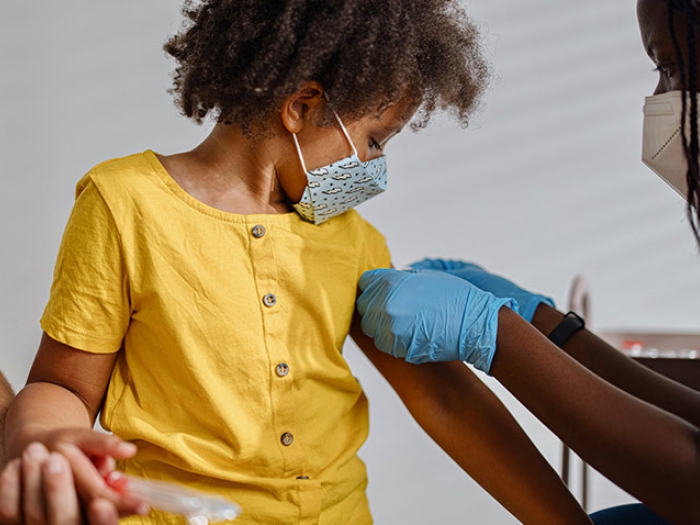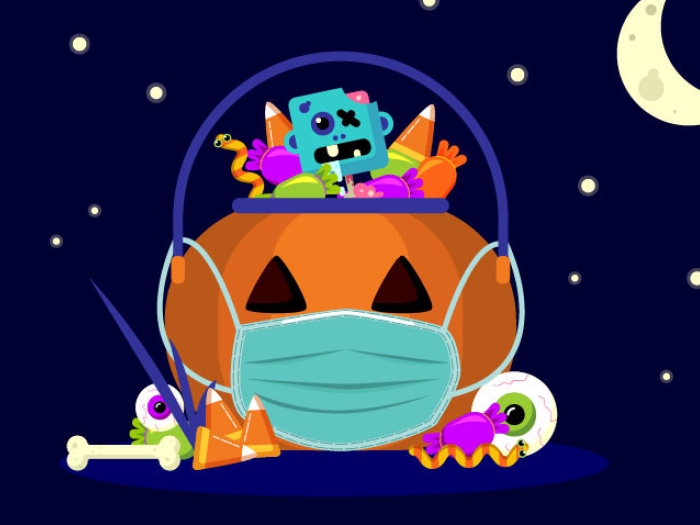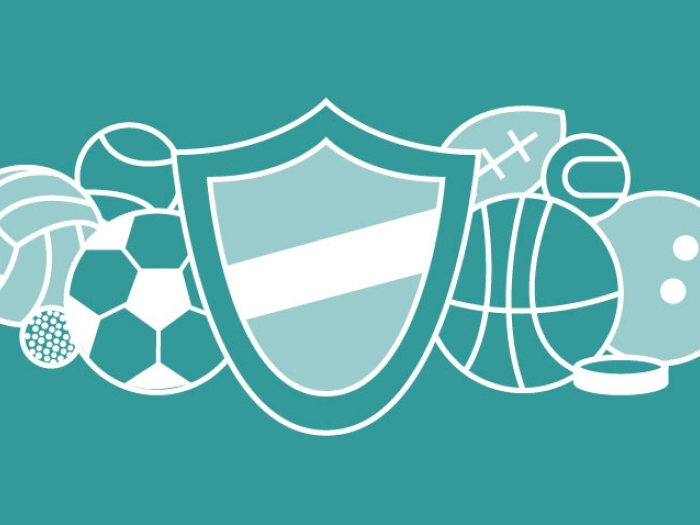Child lawn mower injuries can be severe. Read our top tips to keep children safe while mowing this summer.
7:00 AM
Author |

As families tend to their lawns this summer, experts say it is crucial for them to keep safety in mind when mowing.
Bethany Folsom, a health educator for the Pediatric Trauma Injury Prevention program at University of Michigan C.S. Mott Children's Hospital, has seen the dangers lawn mowers pose to children. And according to Folsom, parents are the first line of defense in keeping children out of harm's way.
LISTEN UP: Add the new Michigan Medicine News Break to your Alexa-enabled device, or subscribe to our daily audio updates on iTunes, Google Play and Stitcher.
"While lawn mower injuries may seem infrequent, the injuries that we see are often devastating," Folsom says. "These cases are heartbreaking, not only for the child and their family but also the individual who was operating the machine when the incident occurred."
Severe lawn mower-related injuries may result in partial or complete amputations or extensive bone, muscle, ligament and vascular structure damage. Such injuries may affect a child's ability to walk or play and require months, or even years, of repair and rehabilitation.
MORE FROM MICHIGAN: Sign up for our weekly newsletter
Folsom, who is also a coordinator for the Huron Valley chapter of Safe Kids Worldwide, shares her top safety guidelines every parent should know before pulling out the lawn mower for the season.
Reiterating mower safety skills:
1. Keep your children inside, and don't let them play nearby.
Adults should keep children inside when someone is mowing the yard, Folsom says. Mowers are loud, and the person mowing may not hear if a child is coming up to him or her.
Folsom also recommends clearing any objects like stones, toys or sticks before starting to mow; many times these items are missed and can be picked up and thrown by the lawn mower. These projectile objects can injure people of all ages.
"When thinking about the safety of children in regard to lawn mowers, we look at all possible ways an injury may occur," Folsom says. "It's not just preventing kids from being run over that is the focus."
2. Don't allow passengers on the lawn mower.
A parent cannot adequately maneuver a mower with a child on his or her lap, Folsom says. Also, the chance of the child falling off the mower and being severely injured increases dramatically when riding on a parent's lap.
"Kids are unpredictable, often wiggling and moving," Folsom says. "When the lawn mower is moving and turning, kids can lose their balance and fall off. Parents need to keep their child off of and away from the lawn mower at all times to ensure everyone's safety."
3. Know the age recommendations for operating different styles of mowers.
Folsom follows the American Academy of Pediatrics' recommendations on what ages kids can properly use a lawn lower. According to the academy, children should be at least 12 to use a walk-behind or push mower. Children should be at least 16 to operate a riding mower.
"We often compare driving a car to driving a riding lawn mower: If you don't think your child is old enough to operate a moving vehicle, the same thought process should be applied to lawn mowers," Folsom says. "Maturity, being safety-minded and sense of responsibility are key to lawn mower use, both with push and riding mowers."
4. Remind children that lawn mowers are powerful, dangerous machinery.
Children are social learners and often mimic and model what they see adults do, so when they get to sit on a lawn mower or pretend to drive, they see themselves cutting the grass or view the lawn mower as something that can be fun.
Even if this is done with supervision and when the motor is off, adults are still showing and communicating that it is OK for the child to sit on the lawn mower.
"Accidents can happen in the blink of an eye," Folsom says. "In many of the cases we have seen, injury has happened because a child fell off of a riding lawn mower or a child approached a lawn mower while in use, not realizing it is dangerous."

Explore a variety of health care news & stories by visiting the Health Lab home page for more articles.

Department of Communication at Michigan Medicine
Want top health & research news weekly? Sign up for Health Lab’s newsletters today!





